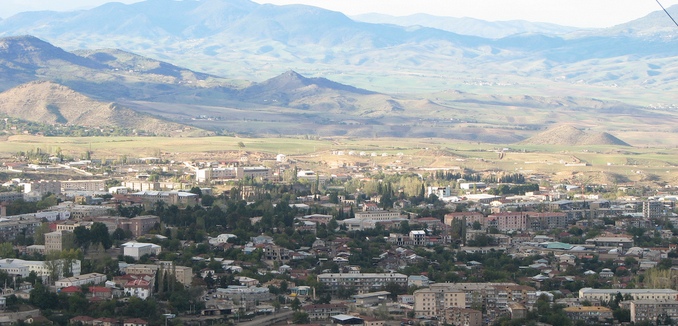After the CEO of French telecom giant Orange made comments in Cairo earlier this week that were interpreted as withdrawing from the Israeli market and supporting a boycott of the Jewish state, international law expert and Northwestern University Law School professor Eugene Kontorovich wrote an analysis, published today in The Washington Post, that accused the company of hypocrisy due to its business dealings in Nagorno-Karabakh, a territory in Azerbaijan that is under occupation by neighboring Armenia.
Major French companies, like Total, are quite active in Moroccan-occupied Western Sahara, with the apparent approval of the French government. But it turns out that Orange itself directly and openly operates in occupied territory. Orange provides cell phone service in Nagorno-Karabakh, an area of Azerbaijan that has been occupied by Armenia since seizing it in a bloody 1992-94 war. The U.N., along with the E.U. and U.S., considers the area occupied territory. Nonetheless, Armenian settlers have moved into the occupied territory in in significant numbers, amid constant complaints from Baku and others. …
In other words, Orange, and the French government, is committing what a senior French official just described as a war crime. Indeed, by the theoretical international law standards applied to Israel, Orange’s behavior in Armenia is particularly egregious. Having cell phone towers in the West Bank (the purported crime of Orange’s Israeli licensee) does not involve any recognition of Israeli sovereignty or any judgement about the status of the territory.
On the other hand, Orange’s website touting its Karabakh service refers to the territory as “NKR”, or the Nagorno-Karabakh Republic. This refers to the self-proclaimed, entirely unrecognized state (akin to the Turkish Republic of Northern Cyprus) which is entirely controlled by Armenia. U.N. Resolutions have specifically called for the “nonrecognition” of the NKR. Orange’s Armenian website also calls the area “Arsatakh,” the ancient name for the region favored by Armenia nationalists. It would be as if Orange, instead of complaining about, boasted of its “service in Judea and Samaria.” Indeed, Orange cravenly calls NKR a “country,” despite the clear admonition of its own government and UN against recognition of what is universally regarded as Azerbaijani territory. It would be as if Orange boasted of its service in the “Golan Heights of Israel.”
Kontorovich noted that the situation in Nagorno-Karabakh is still unstable, with deadly fighting breaking out last year, and “a full scale war over the occupied territory is looming.” Even if one objects to a nation’s presence in occupied territories, Kontorovich observed, “there is absolutely no law, rule, or general practice against doing business in occupied territories.”
That Orange could operate in Nagorno-Karabakh with approval from the French government, while condemning Israel for the same activity, shows that both entities have no compunction about doing business in occupied territories and are concerned not with the neutral application of the law, but rather by “made-up pretexts to condemn Israeli conduct.”
[Photo: hamming_huang / Flickr ]




